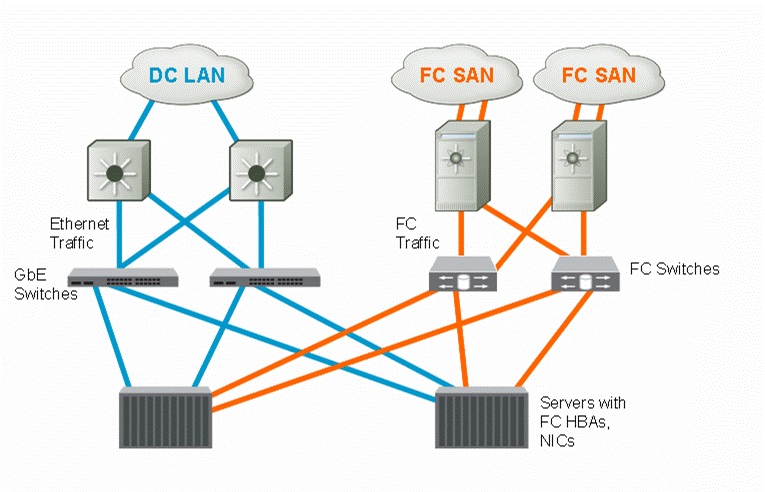Fibre Channel Definition

Fibre Channel is a technology for transmitting data between computer devices at data rates of up to 4 Gbps (and 10 Gbps in the near future). Fibre Channel is especially suited for connecting computer servers to shared storage devices and for interconnecting storage controllers and drives. Since Fibre Channel is three times as fast, it has begun to replace the Small Computer System Interface (SCSI) as the transmission interface between servers and clustered storage devices. Fibre channel is more flexible; devices can be as far as ten kilometers (about six miles) apart if optical fiber is used as the physical medium. Optical fiber is not required for shorter distances, however, because Fibre Channel also works using coaxial cable and ordinary telephone twisted pair.
Fibre Channel offers point-to-point, switched, and loop interfaces. It is designed to interoperate with SCSI, the Internet Protocol (IP) and other protocols, but has been criticized for its lack of compatibility – primarily because (like in the early days of SCSI technology) manufacturers sometimes interpret specifications differently and vary their implementations.
Standards for Fibre Channel are specified by the Fibre Channel Physical and Signalling standard, and the ANSI X3.230-1994, which is also ISO 14165-1.